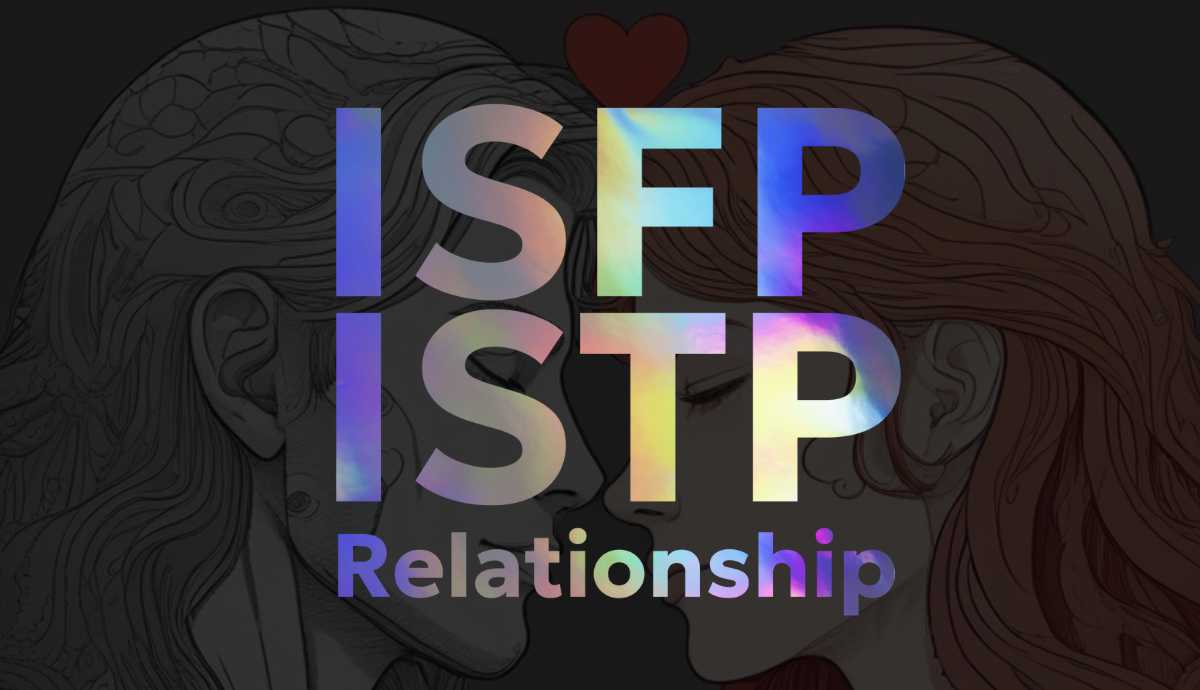Self-sabotage is a counterproductive pattern of behavior where individuals undermine their own success, happiness, or well-being. It often stems from deep-rooted fears, insecurities, or negative beliefs about oneself. While it may offer temporary relief or validation of these beliefs, it ultimately hinders personal growth and fulfillment.
Engaging in self-sabotage can lead to missed opportunities, damaged relationships, and stagnation in life. By recognizing these destructive patterns and actively working to overcome them, individuals can pave the way for positive change, achieve their goals, and cultivate a healthier, more fulfilling life. Each MBTI personality may tend towards self sabotaging behaviors that are particular to them. Here is a look at 7 that may be of special relevance to the INTP and how they can be avoided.
1. Doing too Much on Their Own.
As an introvert who strongly values independence and autonomy, the INTP prefers to make themselves as self-sufficient as possible. While ESFJs prefer to work in teams, INTPs prefer to go solo. Pride can make it hard for INTPs to ask for help even when it is in their best interests to do so. For them, asking for help can feel like a threat to their self confidence and a sign of inability on their part. Many INTPs may need to learn to be okay with seeking help and understand that they don’t have to feel weak for doing so.
2. Underestimating Others.
Intelligence is very important to INTPs and INTPs tend to favor IQ tests, SATs and other academic tests as their preferred sources of intellectual validation. Intelligence comes in many forms but INTPs can have a strong bias toward the abstract, ontological and creative variety. Consequently, they may tend to overlook, underestimate and underappreciate the concrete tactile intelligence of the grease-stained mechanic, or the emotional intelligence of an excellent customer service agent. Although these skill sets may not be their cup of tea, INTPs would be remiss to discount their importance and the aptitude necessary for performing them.
3. Withholding Affection and Warmth.
As a type who can be so good at controlling their emotions that people sometimes wonder if they have any, INTPs could probably fare well at the game of poker. Of course, INTPs do have emotions like everyone else, it’s just that they tend to see no point in showing it. This is in part because to them, it just makes situations more complicated and messier than they need to be. Many people of course do not share this view and as a result, the INTP’s lack of emotional response may often get perceived as a sign of callousness and uncaring.
4. Denying Their Emotions.
INTPs emotional suppression can come at a cost however. Bottling up their negative emotions for too long can be detrimental to their mental health and eventually cause them to explode in anger. INTPs don’t like to react emotionally to situations before they’ve had a chance to process and think it through rationally. However, sometimes INTPs should listen to their feelings and speak up when they need to. Their discomfort and anxiety can get in the way, allowing more forceful personalities to railroad theme and trample on their principles.
5. Social Distancing.
INTPs tend to be shy and reserved around people they aren’t acquainted with. They generally keep people at a distance until they’ve gathered enough about them to decide on getting closer or not. On the plus side, the INTP’s social barrier helps screen out manipulators and snakes from entering their lives. On the other hand, their reluctance to be more socially bold, can mean that they will likely miss a lot of opportunities to meet some really great people.
6. Ostracization.
The difference between how INTPs behave among people in their inner circle and people not in their inner circle can be dramatically different. Around their friends, they can be gregarious and fun to be around but as soon as some unfamiliar person joins in, INTPs can all of a sudden clam up. This tendency can cause offense to people, making them feel alienated and frozen out. This is one of the common ways in which INTPs can unintentionally offend people who don’t understand their social awkwardness.
7. Being a “Right Fighter”.
As independent thinkers who are staunchly opposed to other people telling them what to think or believe, INTP can sometimes become completely unreceptive to any suggestion or perspective that differs from theirs. INTPs are normally open to having their reasoning and logic challenged by that of others and when found in error, are willing to readily acknowledge it and correct themselves. Sometimes however, INTPs are so sure of themselves that they won’t even entertain the notion that they are wrong. Sometimes overzealousness, intellectual arrogance and the desire to prove themselves correct can overshadow their objectivity.
Want to know your astrology placements? You can generate your astrology chart here with our free birth chart generator tool.
related posts:
- The INTP Personality: What it means to be the Logician MBTI Type
- INTP Strengths; 7 Advantages of Being INTP
- INTP Weaknesses: 7 Struggles of being INTP
- 6 Best Paying Careers For the INTP
- The Dark Side of INTP
- The 5 Stages of INTP Anger
- 6 Signs An INTP Likes You | How INTPs show love
- 35 Undeniable Signs You’re An INTP
- 100 Deep Quotes From Famous INTP People
- 25 Interesting INTP Statistics & Facts
- American Presidents Ranked By Zodiac Sign - January 20, 2025
- ESTP and ESFP in love: 6 Dynamics of Their Relationship - September 4, 2024
- ISFP and ISTP in love: 5 Dynamics of their Relationship. - August 28, 2024






Arrgggh. Reading this article made brought to mind my life as a child growing up in a Catholic family, especially in the Lenten period (the weeks leading up to Easter) when both my mother and my teacher at the (very Catholic) school I went to would both remind me to think about what I had to give up for Lent.
Now, Lent usually lasts for 40 days, which is 5.7 weeks and for a school-age child that seemed like forever. You had to give up something that you really liked and enjoyed. Anything less was cheating.
I’m not a child anymore but if I tried to stop social distancing, I wouldn’t last one week, let alone 5.7 weeks. And since the COVID-19 pandemic has made this practically mandatory, I’ve been happy as a pig in shit. And more understanding of people who find it more comfortable to go with the flow of social expectations rather than swim against the tide.
I’ve learned (the hard way) not to underestimate people who have different types of intelligence but I still loath people who are cunning and manipulative. I can listen to someone with a different point of view if it’s from someone I respect sufficiently. My dog has taught me about affection but the only beneficiaries are my dog and my long-term partner, though most would say that giving affection only to my nearest and dearest is a cop-out, just like giving up something you wouldn’t really miss for Lent.
That still leaves a few behaviors that would be very challenging for me to give up, like a pair of crutches. Doing too much on my own – but, as Warsan Shire would say, “My alone is so good that I’ll only have you if you’re sweeter than my solitude” and those people are rarer than hen’s teeth. Withholding affection and warmth; hey, you’ve gotta earn it! Denying my emotions – I have the right to remain silent, because anything I disclose (especially my emotions) can and will be used against me. Social distancing – the biggie. And ostracization – what’s so wrong with being selective?